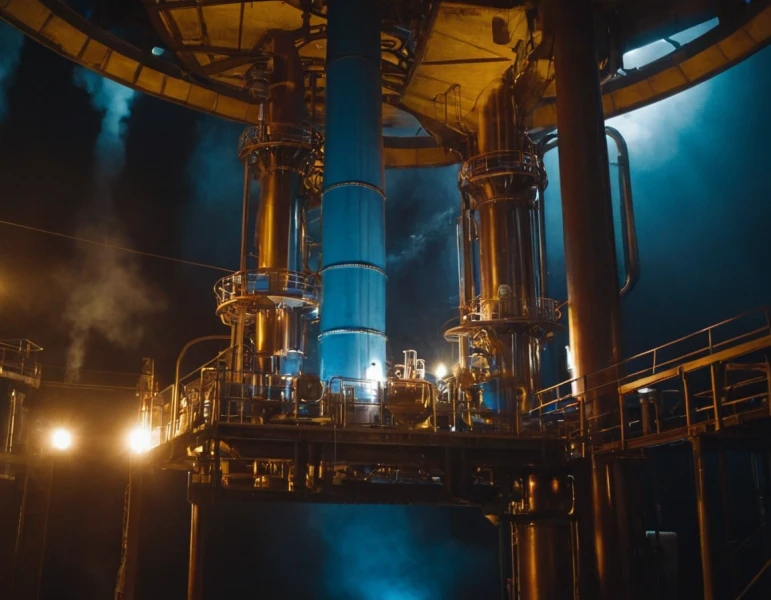Educa UNIVERSITY|SCIENCE AND ENGINEERING
Chemical Engineering - Experience, Passion and Knowledge
Related Masters
Chemical Engineering - Experience, Passion and Knowledge
I'm Rubén Águila, and today I want to talk to you from my personal experience about something that has not only defined my professional career, but also my way of understanding the world: chemical engineering. If you've ever been curious about how raw materials are transformed into the products we use every day or how science drives sustainable solutions, you're in the right place.
What is chemical engineering?
In a nutshell, chemical engineering is the art of transforming materials through scientific and technological processes. It's not just pure chemistry, as in a lab full of test tubes. It's much more: physics, mathematics, biology, and above all, the ability to solve complex problems.

From designing processes to make medicines to creating more efficient fuels, chemical engineers are behind almost everything you touch, use and consume. It's a discipline that requires not only technical knowledge, but also creativity and a dash of daring.
My relationship with chemical engineering
My path to chemical engineering was not a direct one. I started as a technician in a small laboratory, fascinated by how a chemical reaction could change everything. Since then, I have worked in industrial plants, developing processes that have impacted the production of plastics, detergents and biofuels. The most exciting thing?Each project forced me to learn something new and constantly challenge myself.
What does a chemical engineer do?
Versatility is key. A chemical engineer can perform roles such as:
- Industrial process design: Optimizing production plants to make them safer and more efficient.
- Materials innovation: Creating new products, such as biodegradable plastics or advanced adhesives.
- Environmental control: Designing technologies to reduce emissions or recycle industrial waste.
- Project management: Leading teams to implement large-scale processes.
In simple words, the chemical engineer is the bridge between pure science and practical application. He or she ensures that ideas work in the real world.
What do you need to be a chemical engineer?
First, an insatiable passion for solving problems. The degree includes subjects such as thermodynamics, heat transfer, fluid mechanics and reactor design. But the real training begins when you apply that knowledge in real-world situations.
In my case, learning didn't end at university. There are always new technological challenges and digital tools to discover, such as process simulators or real-time data analysis.
Chemical engineering and sustainability
Today more than ever, chemical engineers have a crucial role to play in the fight for a more sustainable world. We work in:
- Renewable energies: Optimization of processes to obtain biofuels and reduce dependence on oil.
- Water treatment: Development of technologies for potabilization and reuse.
- Green production: Implementation of industrial methods with a lower carbon footprint.
These projects not only have an environmental impact; they also generate significant economic benefits.
The challenges of chemical engineering
I'll be honest: it's not all easy. Technical precision and the ability to make quick decisions in critical situations are essential. I have faced moments where a small deviation in a process meant hours of analysis to avoid big losses. But therein lies the magic: every challenge is an opportunity to grow.
Conclusion: Is chemical engineering for you
If you enjoy solving problems, love science and are interested in contributing to society in a practical way, maybe you should consider this career. It doesn't matter if you work in a multinational or an independent lab, it's the passion for transforming the world that counts.
Faculties
Trainings
The faculties embrace diverse academic disciplines and fields of study, opening doors to new perspectives and exploring different spheres of wisdom in a constantly evolving world.














